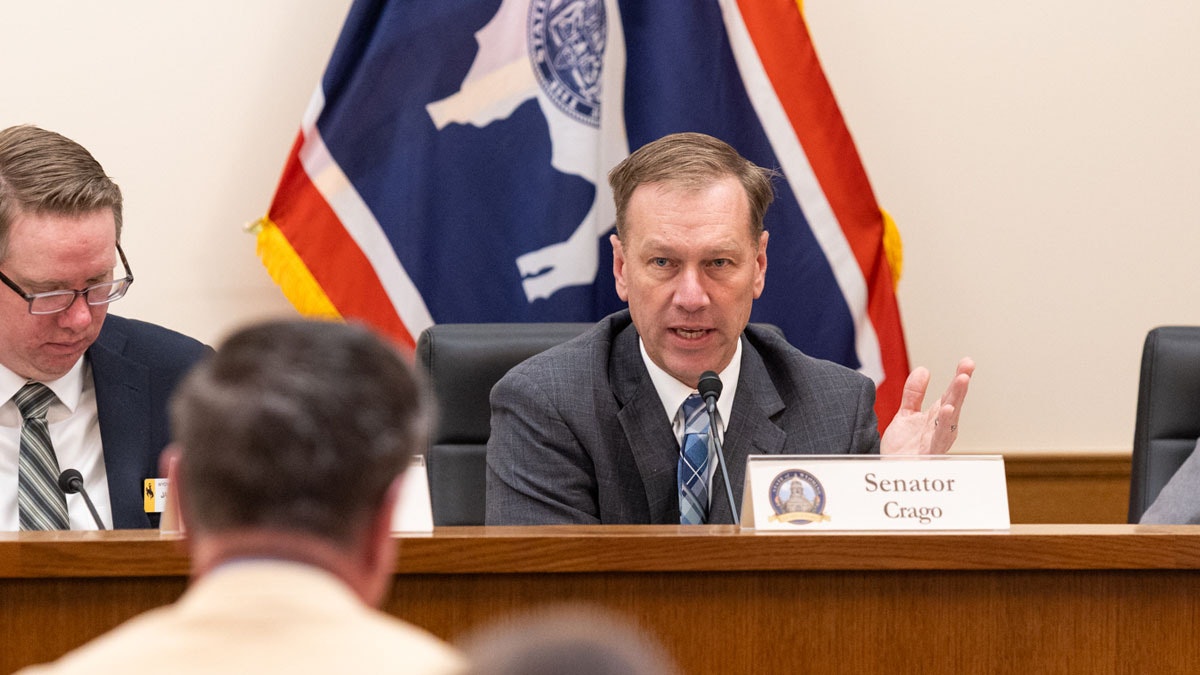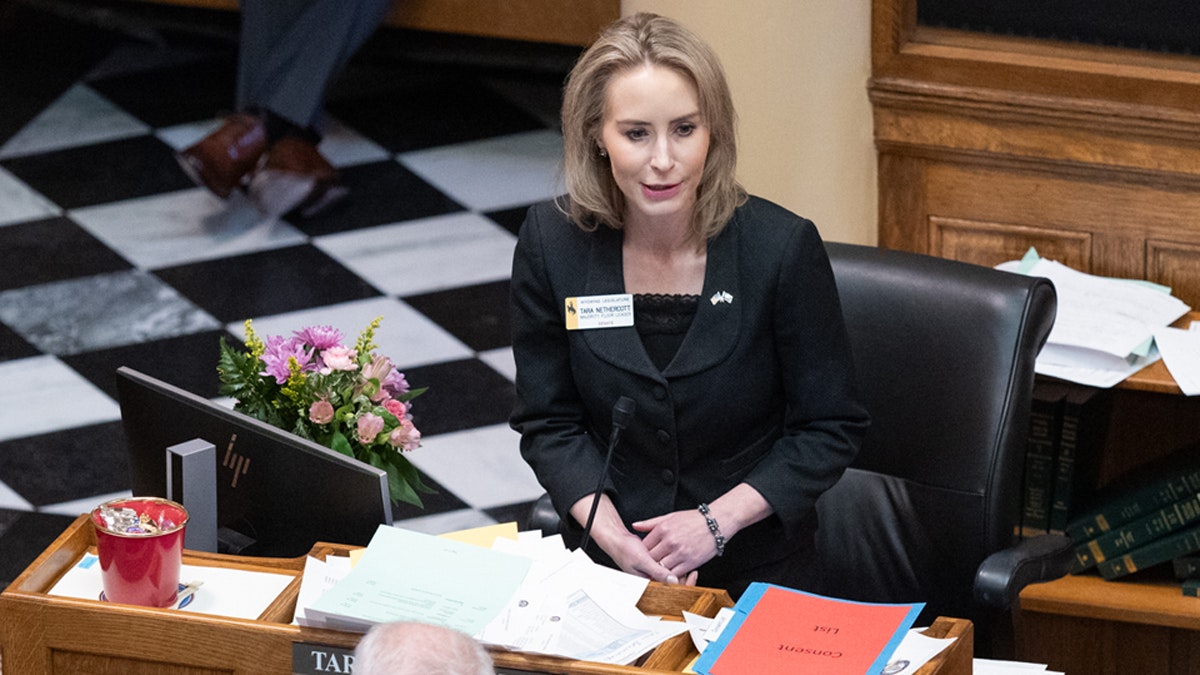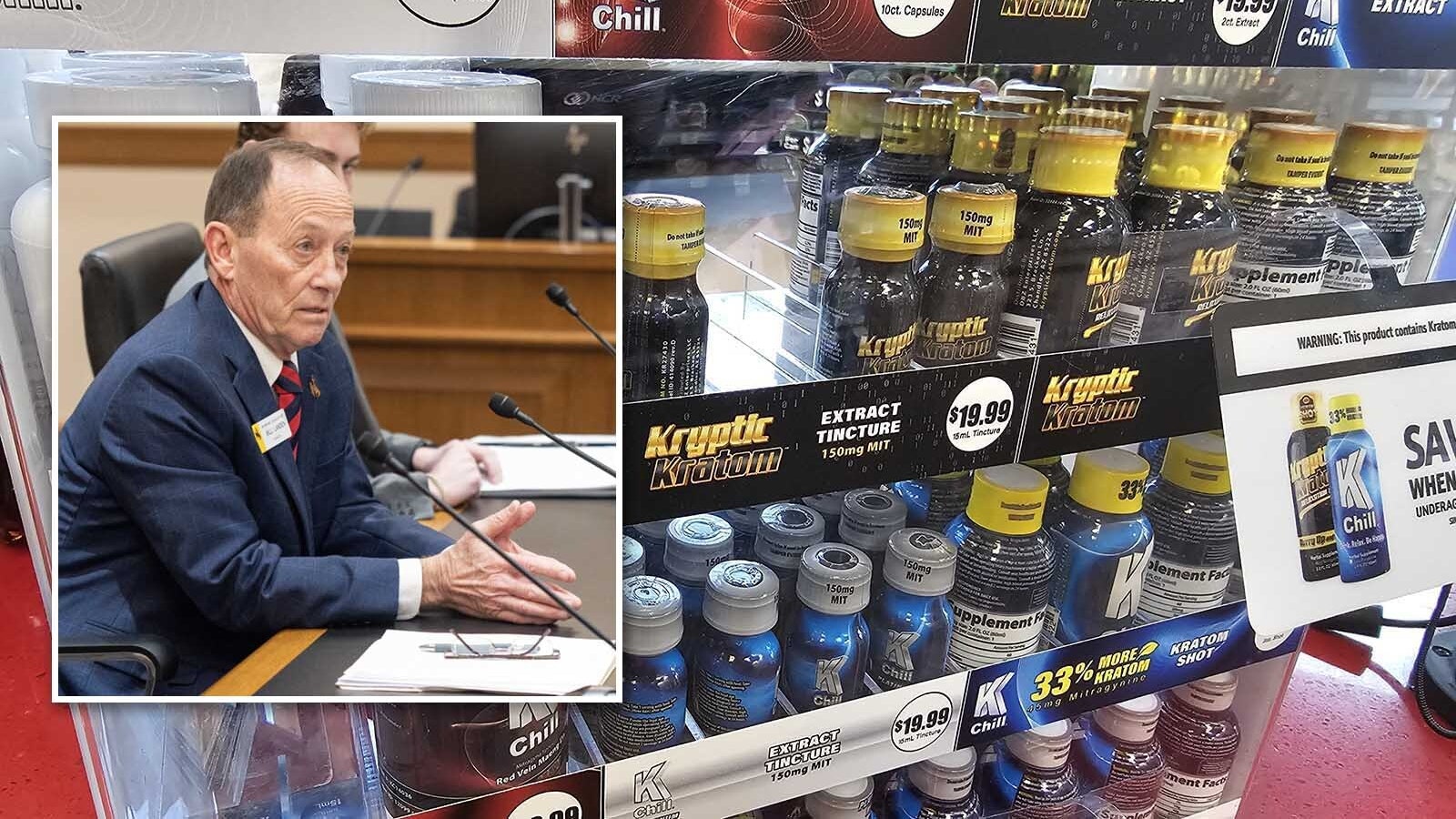Some surprising divides have been forming over cutting property taxes in Wyoming, with previously like-minded Republicans divided over the issue.
Few would have likely expected former state legislator Scott Clem, a current Campbell County commissioner, to rise in defense of protecting local government funding. Clem was one of the most conservative members of the Legislature when a member from 2015-2020, earning high scores from the conservative political ranking group WyoRINO.com during his last two sessions.
He became a county commissioner in 2024.
Clem has argued on social media over the past week that local governments and schools should not see reduced funding as a result of cutting property taxes.
“Is the goal for the majority of this legislature to spend away our savings so as to force cuts to education?” Clem questioned on Facebook. “Are counties, cities, and special districts, and the services customarily provided to citizens collateral damage? How many people will be hurt in the process of making public education "pay?” Do we need to spend down year’s worth of hard faught (sic) savings?”
The topic of property tax relief has been one of the biggest of the 2025 session, in some ways underscoring an already well-documented Republican divide between new guard, populist and establishment factions.
But the divide has now reached to the most conservative reaches of the GOP, with Clem and Campbell County Sen. Troy McKeown, R-Gillette, taking differing stances on the topic.
“I think his concern is funding for the county commissioners,” McKeown said.
McKeown believes a “sky is falling” narrative has been painted by local governments and emergency services that he believes is equivalent to “fear mongering.”
“We’re talking about a 7% cut at most,” he said. “When you’re talking about a county that has $230 million-$300 million in reserves, they’re going to be OK.”
Where Things Stand
On Wednesday night, the House passed Senate File 69, a bill that provides a 50% tax cut along with a 50%, up to $225 million, backfill for local communities.
The Senate passed this same bill without a backfill, a topic that will likely come to a head when the two chambers try to hammer out an agreement on the bill. Further, the governor has communicated to legislators that he will veto any bill that contains a backfill.
Many who have argued for backfills have pointed to the fact that although certain Wyoming counties have seen large property tax increases and corresponding revenue, this hasn’t occurred everywhere. Some of the state’s poorest counties like Niobrara and Albany have seen much more modest increases.
“There’s a lot of moving parts with this and it’s not as cut and dry as people think when you’re talking about hardship counties,” Clem said.
The 50% cut only applies to home values up to $1 million, a threshold Clem believes is unconstitutional.
“When you put a threshold on there, you really bring on the constitutional challenges,” he said.
Clem favors reducing the property tax assessment rate from 9.5% to 8.3%, would roughly result in a permanent 12.6% decrease in taxes. He also wants the state to adjust its sales tax distribution formula so that local entities receive a higher percentage of the pie.
The Ethics Of A Backfill
The ethics and practicality of providing a backfill for Wyoming’s local governments and schools that will lose tax revenue as a result of a property tax cut has taken center stage in this year’s property tax discussions.
The majority of the Senate has been opposed to providing a backfill, arguing that it defeats the purpose of having a tax cut and is unsustainable. Some like Sen. Tara Nethercott, R-Cheyenne, have gone as far as saying that residents need to feel the effects of getting a tax cut.
McKeown doesn’t believe backfills are constitutional, another reason he doesn’t support them.
“We all know what the constitution says,” he said.
The Wyoming Constitution states that all taxes must be assessed uniformly in Wyoming, a major hurdle in crafting any property tax solution.
Clem explained to Cowboy State Daily they never had to deal with the issue of property taxes when he was in the Legislature, as he left before most of the big spikes hit Wyoming. He did get some experience with the topic when bringing an industrial tax exemption bill, where he learned after drafting his legislation that it was likely unconstitutional.
“There’s a lot of different things,” he said. “There’s not only the issues, the ramifications, but then there’s also the constitutionality of these different measures as well,” he said.
Some in the House like Rep. John Bear, R-Gillette, have argued that the Wyoming state government has so much money in savings it can afford to provide both a large tax cut and a backfill.
In one of his Facebook posts, Clem complimented Rep. Steve Harshman, the longest serving member of the House who Clem often disagreed with during his time in the chamber. Harshman has warned that the House is taking a far too aggressive approach to property tax relief by spending its savings.
“As one of those legislators who actually helped put money away to weather our boom/bust economy, and one who was part of latest bust in the late 2010's, spending down our state savings when times are good, all things considered, is the last thing this legislature should be doing!” Clem posted. “As I listen to debate this session, I find myself, begrudgingly at times, agreeing with him (Harshman). I also notice that many who oppose him do so for personality reasons more than policy reasons. The guy is smart, tactful, and has incredible institutional knowledge. To deny that is willful ignorance.”
Rep. Tom Kelly, R-Sheridan, has a more nuanced perspective, seeing backfill as a necessary evil to support Wyoming's poorest counties. He also believes it’s unethical to punish people who get tax cuts, some of which didn’t even vote in the election.
Wyoming's Democrats have been much more consistent on the topic of property tax relief, supporting measured approaches that don't involve cutting local services.
"We are united in supporting our communities across the state," said Rep. Mike Yin, D-Jackson. "Whether it's the county sheriff's services or the ensuring our hospitals don't get defunded, we stand together on that issue, even if Republicans are split."
The Clouston Solution
Kelly said an amendment brought last week by Rep. Ken Clouston, R-Gillette, to base the 50% tax cut off of the increase of assessed value on a home from 2019-2024 was the best solution he saw for addressing property tax cuts because of its nuanced approach.
“The one-size fits all policies are a noose and Ken Clouston found an elegant way to have a single policy that affected counties differently,” he said.
But the amendment lost steam when SF 69 was heard on third reading on Wednesday. There were few clear reasons as to why support had dwindled for the solution beyond that it didn’t provide enough tax relief and was too confusing to understand.
“I felt like it was pretty messy, a lot of people did,” said Rep. Tomi Strock, R-Douglas. “That’s what I was getting from everybody.”
During Wednesday’s discussion, some accused members of the Wyoming Freedom Caucus of torpedoing Clouston’s amendment for political gain. Clouston said he agrees with this conclusion.
“Due to apparent pressure from the Freedom Caucus, that support was reversed in the House,” Clouston said. “It’s always disappointing to see political maneuvering take precedence over a solution that could have benefited everyone.”
Although Clem said he liked Clouston’s approach, he also questioned its constitutionality, as did Rep. Steve Johnson, R-Cheyenne, who pointed out that different counties and homes would have received different rates of tax relief.
It appears extremely likely at this juncture that some kind of major property tax cut will come out of the 2025 Legislature. It also looks likely that local governments and schools will be taking some kind of hit.
During this year’s tax discussions, Laramie County has been frequently pointed to as a bad actor for the way it’s used its property tax revenue because of the amount of money it’s been keeping in reserves.
Laramie County Commissioner Gunnar Malm said misinformation has been spread about how much money his county is keeping in reserves, with some claiming it's as high as $280 million.
The real number, Malm said, is $92 million, which the county uses for a variety of active purposes including performing maintenance on its vehicles and nine months of county expenses in the event it lost all of its incoming revenue. Malm sees these revenues as “protecting the taxpayer’s investments.”
“Just because we have money doesn’t mean we just spend it back,” he said.
Some like Laramie County Sheriff Brian Kozak have warned that his department will have to cut its budget by $2 million and lay off 25 employees if SF 69 passes into law.
Malm expressed frustration that some of the Laramie County representatives like Johnson have refused to sit down with the commissioners to learn about how they use their budget.
“They’ve said we’re lying,” Malm said.
With a revenue cut imminent, Malm and Clem said their counties probably have enough resources to avoid taking draconian measures. But other counties and cities, they warned, won’t be so fortunate.
“I just don’t think anybody has a full realization of what exactly the consequences might be,” Clem said.
Leo Wolfson can be reached at leo@cowboystatedaily.com.





